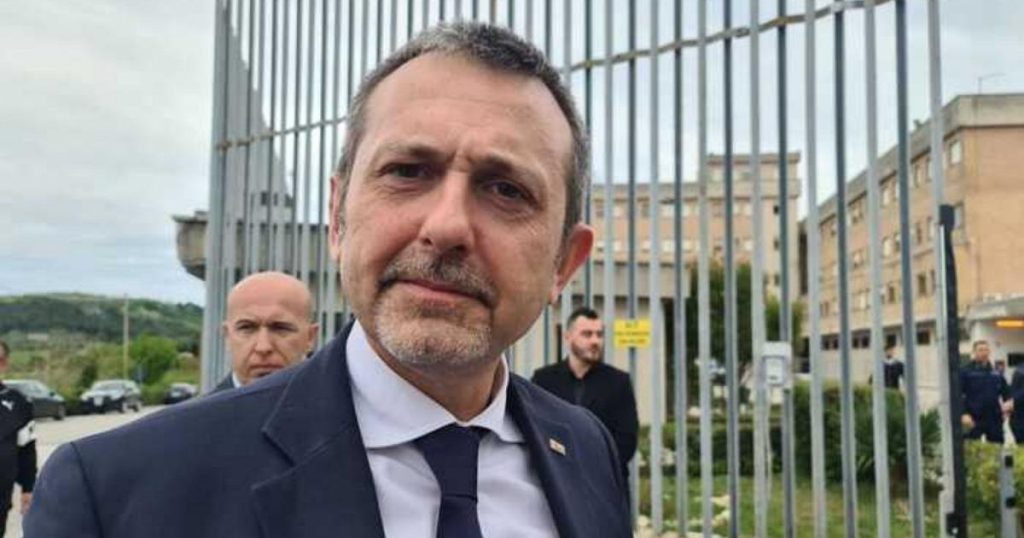Several users reshared the photo of the Undersecretary of Justice, Andrea Delmastro, who had posted an image of his visit to the Brindisi prison on his social media profile. In the now-deleted photo, Delmastro is seen inside the facility with a lit cigarette between his fingers, right next to a no smoking sign: a detail that did not go unnoticed by numerous users, who emphasized in their protest comments the fact that smoking is prohibited in prison premises. The irony of many users was evident, comparing him to Alberto Sordi’s character in “Il Marchese del Grillo,” stating: “Because I know who I am and you don’t…”
Another controversy arose from Gian Domenico Caiazza, president of the Union of Criminal Chambers, who commented on a statement made by the undersecretary on X, saying, “Delmastro’s words, in which he arrogantly claims to have visited the Taranto prison to only meet with the prison police, because he does not bow down to the ‘Mecca of prisoners,’ are of a definitive gravity. I struggle to understand why none of the political parties or associations that are usually attentive and outspoken in denouncing the shame of prisons demand the immediate resignation of someone so inadequate for the role, or ask Minister Nordio what he thinks about such a scandalous statement from his deputy.” It is clear that the undersecretary fails to understand that prisoners, whether they are the worst criminals or innocent individuals awaiting trial, are entrusted to the custody and responsibility of the state, specifically the ministry he disgracefully represents.
If these inmates are kept in the indecent conditions known to all, it means that Delmastro delle Vedove formally represents those responsible for that indecency (which, naturally, has many contributors in recent decades). By going to a prison and only speaking to the prison staff and administrative personnel, proudly boasting of having ignored the inmates, he not only ignites an explosive opposition between “good” and “bad,” but also demonstrates a lack of understanding of his role and responsibilities. Anyone who confuses politics with crass propaganda of their own ideas cannot be entrusted with such an important government responsibility. This is likely to spark a new wave of controversy and backlash.
The actions and statements of the undersecretary have sparked outrage and raised serious questions about his competence and suitability for the role he holds. The blatant disregard for rules, such as smoking in a non-smoking area in a prison, and the dismissive attitude towards meeting with prisoners, only serves to highlight his ignorance of his responsibilities. The call for his immediate resignation by various individuals and organizations reflects the level of dissatisfaction and disappointment with his behavior. It is evident that a person in a position of power and authority within the justice system should be held to higher standards and be accountable for their actions.
The lack of understanding and empathy displayed by the undersecretary towards the inmates under the custody of the state is concerning. By failing to recognize the importance of engaging with all stakeholders in the justice system, including prisoners, he is perpetuating a divide between different groups and failing to fulfill his duty as a representative of the ministry. The criticism and demands for accountability directed towards him highlight the need for individuals in positions of power to act responsibly and ethically, especially when dealing with sensitive issues such as prison conditions and the treatment of inmates. It is essential for those in leadership roles to demonstrate respect for the rule of law and human rights, regardless of their personal beliefs or ideologies.
Overall, the controversy surrounding the undersecretary’s actions and statements underscores the importance of accountability and integrity in public office. The backlash from the public and various organizations serves as a reminder that individuals in positions of authority must adhere to ethical standards and uphold the principles of justice and fairness. It is imperative that those entrusted with the responsibility of governing and representing the interests of the public act with professionalism and respect towards all individuals, regardless of their circumstances. The ongoing debate and criticism surrounding this issue highlight the need for transparency, accountability, and ethical behavior in all levels of government and administration.


